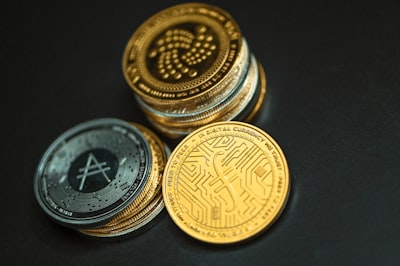What’s happening to money in this brave new chapter following the Cerveza Sickness? Things are moving very fast, and there are quite a few themes to keep track of. First off, authorities now have yet another excuse to ban paper currency, because it supposedly helps spread the disease. That might be true, but it’s likely a secondary reason behind the prospective banning of cash. Governments have been waiting to pounce on any opportunity to digitalize all transactions for quite some time. The control at hand with having all economic transmissions take place digitally is too much to pass up for your average authoritarian. Why? Because cash is anonymous, physical but without a paper trail. If you are a persona non grata, a government can halt your credit cards and put a hold on your bank account, but they cannot halt someone’s cash expenditures.
In a digital system, you can punish your enemies and censor people very effectively, and that’s also true on much higher levels, not just the consumer level. For example, you can kick non-compliant players out of the SWIFT system, you can un-bank wrong-thinkers if they behave in a manner that is politically incorrect, but you can’t ‘un-cash’ someone. You can also halt ATM withdrawals during a bank-run, you can set a negative interest rate to force people to spend their digital money from their accounts, but this doesn’t apply to cash-holders. Cash is not subject to the same manipulations as digital currency. It’s the last bastion of economic sovereignty that common people have. It’s not subject to the tyrannical policies the way digital channels are, and that’s precisely why most authorities hate cash and try so hard to ban it.
Speaking of tyrannical policies: we’re now witnessing umpteen trillions being printed to ‘save’ the economy — what’s going to happen to prices moving forwards? There has been some talk of the threat of inflation. Inflation is certainly on the horizon as it pertains to consumer goods, but it’s unlikely that we’re going straight into hyper-inflation any time soon. How so? The coming surge in defaults and bankruptcies are very much deflationary events. When you don’t pay your mortgage and you default, your loan is extinguished. When the bank reclaims your home, that home will be sold, along with many other homes hitting the market at the same time in your neighborhood, which further contributes to price declines. As the value of the banks holdings decreases, the amount of money that the bank can lend out decreases. Fewer loans means less money chasing goods and services — deflationary.
To compound this further, as we head deeper into recession and people lose their jobs, they are scared to waste money. They might even detect and appreciate that prices decline, all of which are reasons to save their money; save cash specifically. This slows down the velocity of money (the speed at which money changes hands), which further contributes to deflation. When I stop spending money on Uber rides, the Uber driver has less money to spend, and so on. On aggregate, it’s quite possible that in the short term, we see a decrease or plateauing of price levels. This might sound perverse considering the trillions that are printed, but that is feasible — at least in the short to mid-term.
As the real economy continues to decline, central banks will become more desperate, and they will try to stimulate or ‘kick start the economy’ with ever more aggressive means. Of course, this makes about as much sense as throwing around confetti to combat a hangover. The reasoning is, if they can just generate inflation, it’ll cause people to spend their money more quickly, and spending money of course causes economic activity and businesses to operate. If you stop to think about it, it’s an incredibly Machiavellian and manipulative construct, but this is one of the pillars the Keynesian economics rests upon, and that’s the philosophy that the world runs on. Central banks have already lowered interest rates to 0, and taking them negative, means holding your money in account is even less desirable, and by holding cash you at least wouldn’t be losing purchasing power.
Ironically, when the central banks lose their credibility by printing up trillions and ‘saving’ companies, bond holders, stock holders and consumers on the ground, the policy of generating inflation will eventually work — only a bit too well. When evidence of inflation starts to emerge, people indeed start to quickly disburse of their paper currency; and the same with treasuries and any paper wealth. Make no mistake, the policy will kick start people’s spending alright, but that money will go towards quickly acquiring consumer goods; to the bare necessities, and that’s especially true during a natural disaster such as a pandemic. For the people who have some meaningful amounts of money, it will go to more traditional, stabile, proven stores of wealth. Historically, that has overwhelmingly been gold. As quaint and medieval as that might seem, it has emerged as the chosen store of value for 5000 years, in virtually every country, and it’s still the supreme store of value even in modern crises. An ounce of gold bought a tailor-made suit 500 years ago, it buys a tailor made suit today. That, is preservation of purchasing power.
If you look at the history, it’s not like there is much debate as to whether the money printing (or stimulus) will work. It’ll eventually be a spectacular failure. The best case outcome is that of Japan, and that is fairly mediocre. They tried every single trick in the book including having the central bank buy stocks — and their stock market is still way down from its highs and is just sputtering along. Japan had three lost decades thanks to their interventions, they have experienced no growth in their real economy. Meanwhile, consumer price inflation (in other words, what you need to stay alive), has stayed largely flat since the 90’s. As I say, that’s a good outcome, in that it didn’t result in a Zimbabwe situation, or a Venezuela, or a Weimar Germany situation; all of which are certainly on the table for an economy that doesn’t have a strong export sector or a meaningful productive apparatus: such as the US.
If we do get to the point of hyperinflation, nothing will serve to restore confidence in the local currency — except for potentially one thing: and that would be, raising interest rates. Of course, higher interest rates will cripple most surviving businesses. Can you imagine if businesses today had to pay higher interests on their loans? Instead, we have the central banks buying their junk debt. Higher interest rates are of course the only way to wring the inflation out of the system. This was done in the 70’s in the US, and it caused a very painful recession, but it was what was needed to put the inflation genie back in the bottle. At this point, we are beyond the point of no return for this course of action — we’re marching in the opposite direction: we’re talking about printing money for the individual. If we manage to keep the system together, it would come at the cost of an absolutely out of control wealth disparity and a grossly inefficient economy. We’re saving shareholders and junk companies, while the average Joe gets very little, save for more expensive consumer goods.
What’s going to happen to the government debt then? Of course, higher interest rates would make for an even more crippling debt load for the government. This, in turn means they’d have little choice but to default on their debts, or print even more money to pay off its creditors with confetti money. In any case, in the long term, the USD will be so weak that the bonds would be worthless to begin with. What can’t be repaid in real terms, won’t be repaid in real terms, and printing money to pay their creditors would be an unnecessary exercise, because nobody is going to care about the return of their capital.
I believe this is the outright plan — the US will ride the dollar as far as they can; and that is all the way down. What happens next, when the current reserve currency is no longer, we’ll have to see. Maybe we’ll have a global currency issued by the IMF. Maybe we’ll revert back to national currencies, built on a gold standard. It’s not unthinkable, and remember that most countries have held on to their gold assets. Russia and China, both of whom are have obviously anticipated the demise of the dollar for many years, have amassed huge gold reserves. This is not just out of tradition — they are preparing for the next chapter.
Gold is going to increase in value against financial assets as well as other commodities, and this could be quite dramatic. What many investors are now finding out to their surprise, is that it’s already fairly hard to get physical gold (yes, you can buy ETF’s, but they are, essentially pieces of paper; a promise with counter party risk). Not to mention, you have risk just from holding your shares with a broker. Gold stocks are where the real potential gains lie — but this is hit or miss.
How do you buy gold? You can of course buy the physical thing, to truly have no counterparty risk and literally hold your purchasing power in your own hands. But what if you don’t want to store it, or what if your time horizon is shorter and you may actually want to spend it? There’s an app called Glint, which allows you to buy gold stored in Switzerland in your name (in other words, it’s yours even in the event of Glint going bankrupt). You also get a debit card, meaning you can actually spend your gold. This is really quite nifty, and it’s a business that I think could do well. If you want even more security, there’s Goldmoney. They have been around for many years, and it’s run by very serious people who are authorities in the gold space.
In the event that you have a rush to gold, rest assured that the tax authorities will get involved. If gold goes up 10x (which is totally possible in light of the massive interventions now carried out), then there will be a windfall tax on the profits. Governments are not going to sit idly by and watch as people flee their national currencies and get away with it. If you do spend gold, you would theoretically be subject to capital gains tax on the gold spent. (The same is true with crypto — you can’t just spend your crypto to avoid paying capital gains tax. This is something that not so financially savvy Bitcoiners are going to learn the hard way).
OK, so that’s gold, now what about those Bitcoiners? Cryptos won’t challenge national currencies any time soon. They also won’t render gold obsolete, but the two can coexist. Cryptos can be shut down because they are tremendously centralized. The decentralization aspect of Bitcoin is laughable. At least 60% of BTC is mined in China, specifically in just a handful of mining pools. They are as easy to locate as they are to destroy. Another big chunk of Bitcoin is mined by listed companies. In the event of a ban, the big companies are not going to play cypherpunks — they will be obedient little boys and shut down their shop, rather than risk prison.
It’s all good and well to talk about how it’s technically impossible to prevent transactions, but once you have a law and a prison sentence in place for “possession of cryptocurrency with intent to distribute”, that will scare most people out of using them. Remember, even gold was strictly regulated in the USA: it was illegal for individuals to hold. It was never confiscated, because confiscation would have been totally impractical, but the consumer gold market was destroyed.
All currencies that the markets have chosen have had use value in and of themselves (not abstractions). Everything returns to its intrinsic value eventually, including cryptos. Cryptos, in a physical sense, don’t even exist. They are a transaction mechanism; maybe a temporary store of value, but to call it digital gold is not only a misnomer; an oxymoron. In other words, cryptos are a speculation. Regardless of what kind of mental gymnastics you apply, Bitcoin does not encapsulate value because it holds now utility in and of itself.
It has been suggested that since so much electricity is spent to secure the network, that would somehow impute value into Bitcoin. That’s not the case — you are conflating the price of the extraction with the value of the commodity. If I use a teaspoon to dig up a treasure, that doesn’t make the treasure any more valuable than if I had used an excavator. It doesn’t make the teaspoon valuable either, for that matter. The energy you put into the extraction does not make the extracted resource more valuable. There has been a market for gold for 5000 years because it holds value unto itself; it can be used for something, it is unique, it’s dense and can be stored. The same is not true with Bitcoin.
Bitcoin will have some sort of value because of the ledger aspect and the promise of ease of transactions, anonymity etc, but it’s not evident what that value is. This is why, although I continue to hold Bitcoin and am fairly bullish, I am not blind to the massive risks and shortfalls at hand. Point being: don’t fall in love with your investments, keep think critically and size your positions with moderation. Similarly, entertain the prospect for deflation in the short term as well as that for inflation in the long term. What do you think: are we going into hyperinflation? What would you spend your money on if it lost half of its value tomorrow? Is Gold a thing of the past? Is Bitcoin the future? Are they both irrelevant? Drop me a comment! Thanks for listening!
Supporters of taim.io.







